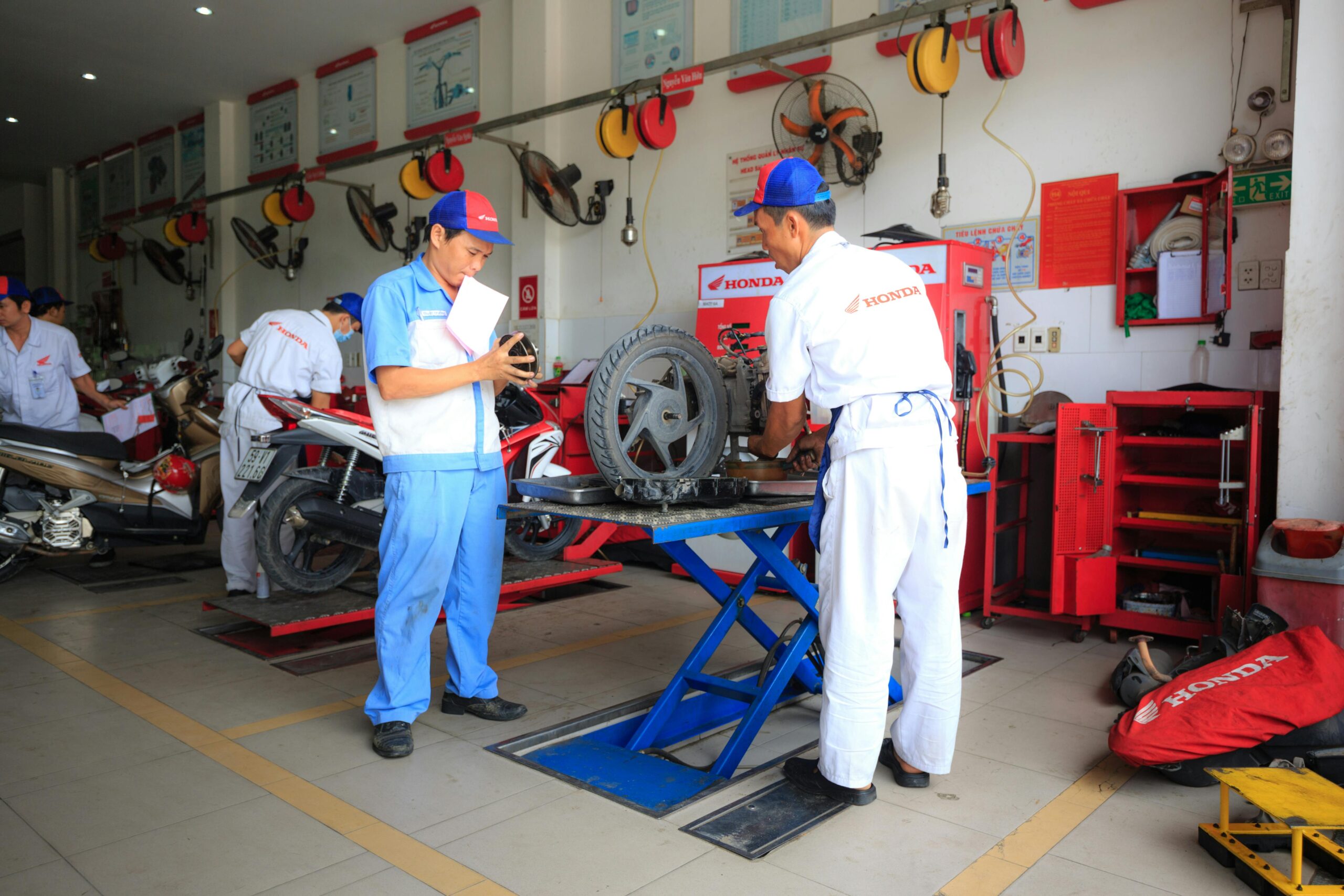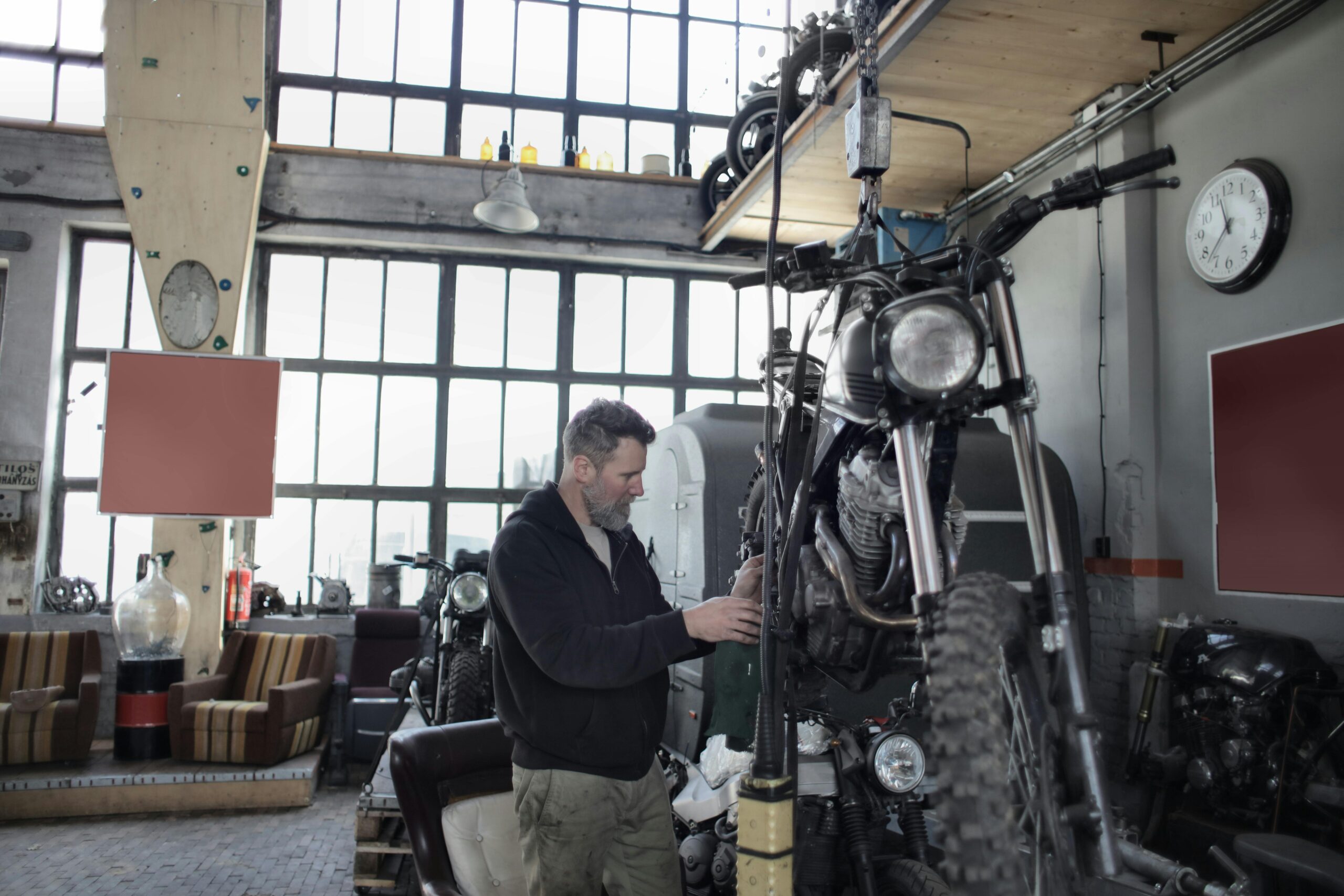Introduction
In the fast-paced world of motorcycle repair, collaboration is key to maintaining high productivity, delivering excellent customer service, and keeping operations running smoothly. When a team works efficiently together, the results speak for themselves—faster repairs, happier customers, and a healthier bottom line. But how do you foster collaboration among your team members? The answer lies in Motorcycle Repair Shop Management Software. This powerful tool can significantly enhance team collaboration, ensuring everyone is on the same page and working towards common goals. As the automotive repair industry continues to grow in 2024, businesses that adopt advanced tools like management software will have a competitive edge. According to the Automotive Service Association (ASA), 35% of repair shops report significant improvements in team coordination after implementing management software. This article explores how Motorcycle Repair Shop Management Software can improve team collaboration and create a more streamlined, efficient workspace.
Streamlined Communication
Communication is at the heart of any successful team. In a motorcycle repair shop, communication between technicians, service advisors, and managers is essential for smooth operations. Without clear communication, tasks can be duplicated, deadlines can be missed, and customers may experience delays or poor service. Motorcycle Repair Shop Management Software helps solve this problem by offering a centralized platform where everyone can communicate in real-time.
With built-in messaging systems and alerts, shop managers can instantly update the team on important tasks, changes to schedules, or customer requirements. Technicians can report on the status of repairs, request additional parts, or ask questions without leaving their workstations. This streamlined communication minimizes misunderstandings and ensures that everyone is on the same page throughout the day.
A 2024 report by the National Institute of Automotive Service Excellence (ASE) revealed that businesses using integrated communication tools within their management software saw a 30% improvement in response times to customer inquiries, which ultimately led to higher customer satisfaction scores. Effective communication leads to more efficient workflows, faster problem resolution, and improved team morale.
Efficient Task Management
Task management is another critical component of team collaboration. In a busy motorcycle repair shop, multiple tasks need to be assigned and completed simultaneously. Motorcycle Repair Shop Management Software simplifies this process by allowing managers to assign tasks, set deadlines, and monitor progress with just a few clicks. Whether it’s scheduling repairs, organizing customer appointments, or tracking parts orders, the software ensures that all tasks are clearly outlined and prioritized.
For example, a shop manager can assign a specific repair task to a technician, while simultaneously scheduling a follow-up appointment for a customer. The technician will receive an alert with the details, including the parts required, customer preferences, and any special instructions. This eliminates confusion and minimizes the risk of errors.
A 2024 survey conducted by the Auto Repair Excellence Group found that repair shops using management software to assign and track tasks experienced a 25% reduction in time spent on manual scheduling and a 20% increase in job completion rates. With better task management, team members can focus on their responsibilities and contribute to the overall efficiency of the shop.
Real-Time Updates and Performance Monitoring
Another key aspect of fostering collaboration is real-time updates on work progress. When every team member has access to up-to-date information about ongoing repairs, parts availability, and customer interactions, it becomes easier to collaborate effectively. Motorcycle Repair Shop Management Software offers real-time updates on job status, enabling all team members to stay informed about each repair’s progress.
Managers can also monitor employee performance through the software, ensuring that tasks are being completed on time and according to quality standards. This allows managers to identify any bottlenecks or areas where team members may need additional support. Real-time performance monitoring helps teams stay accountable and ensures that everyone is working efficiently toward the same goals.
A 2024 report by the Automotive Service Council indicated that 60% of shops using performance monitoring features in their management software reported improvements in technician productivity and service quality. With real-time updates, teams can adapt quickly to challenges and maintain a high level of service.
Simplified Customer Management
Effective collaboration goes beyond internal team dynamics. It also involves building strong relationships with customers. Motorcycle Repair Shop Management Software helps with this by providing a centralized database of customer information. Technicians, service advisors, and managers can easily access customer histories, including past repairs, preferences, and upcoming maintenance schedules. This unified customer data enables the team to provide more personalized and efficient service.
When team members have access to the same customer information, they can collaborate to meet customer needs more effectively. For example, if a customer calls to inquire about the status of their bike, the service advisor can quickly check the system to provide an accurate update, while the technician can receive reminders about any additional services the customer may require. This seamless flow of information ensures that no detail is overlooked and that customers are always well taken care of.
According to a 2024 customer satisfaction study by the Institute for Automotive Customer Experience, repair shops that use centralized customer management systems report a 40% improvement in customer retention rates. This is a direct result of better collaboration and communication within the team, which leads to higher customer satisfaction.
Automated Scheduling and Resource Allocation
Managing schedules and resources effectively is another crucial aspect of team collaboration in a motorcycle repair shop. As the business grows, the complexity of scheduling appointments and allocating resources increases. Motorcycle Repair Shop Management Software automates scheduling, allowing managers to allocate resources efficiently based on technician availability, repair priorities, and customer needs.
The software can automatically assign technicians to specific jobs based on their expertise, availability, and workload. This ensures that the right technician is working on the right task, which helps speed up the repair process and reduces the likelihood of errors. Additionally, by automating scheduling, the software eliminates the need for manual coordination, freeing up valuable time for the team to focus on other tasks.
The 2024 State of the Automotive Industry report by the Automotive Management Group found that repair shops using automated scheduling systems saw a 50% reduction in scheduling conflicts and a 30% improvement in on-time job completion. This improved scheduling capability enhances team collaboration by ensuring that everyone’s time is optimized and that repairs are completed efficiently.
Enhanced Training and Knowledge Sharing
One of the challenges of scaling a motorcycle repair shop is ensuring that new team members are properly trained and integrated into the workflow. Motorcycle Repair Shop Management Software provides tools for knowledge sharing and training, helping new employees get up to speed quickly and collaborate more effectively with the existing team.
The software allows managers to upload training materials, standard operating procedures, and troubleshooting guides that can be accessed by all team members. This ensures that everyone is on the same page regarding best practices and repair protocols. Additionally, experienced technicians can share insights and tips with newer team members, fostering a culture of collaboration and continuous learning.
A 2024 report by the National Automotive Training Association revealed that repair shops that invest in ongoing employee training see a 20% improvement in service quality and a 15% increase in employee retention. By using management software to facilitate training and knowledge sharing, shops can build stronger teams that collaborate more effectively and provide better service to customers.
Data-Driven Decision Making
Lastly, effective collaboration is often driven by data. Motorcycle Repair Shop Management Software provides valuable insights into the shop’s performance, from employee productivity to parts usage and customer satisfaction. By analyzing this data, shop owners and managers can make informed decisions about resource allocation, staffing, and operational improvements.
For example, if the software identifies that certain repair services are consistently taking longer than expected, the team can collaborate to find solutions, such as improving workflows or investing in new tools. Similarly, if customer satisfaction scores are low, the team can work together to address the issues and improve the service experience. Data-driven decision-making ensures that collaboration is focused on continuous improvement and achieving the shop’s goals.
According to the 2024 Global Automotive Market Insights report, businesses that use data-driven decision-making to improve operations report a 22% increase in overall performance and a 18% reduction in operational costs. By leveraging the insights provided by Motorcycle Repair Shop Management Software, teams can collaborate more effectively and drive better outcomes for the business.
Conclusion
Enhancing team collaboration is essential for the success of any motorcycle repair shop. Motorcycle Repair Shop Management Software provides the tools and features necessary to streamline communication, improve task management, monitor performance, and deliver exceptional customer service. By adopting this software, shop owners can foster a more collaborative and efficient work environment that drives growth and customer satisfaction. As the industry continues to evolve, businesses that embrace these technological advancements will be better positioned to stay competitive and thrive in the years to come.





